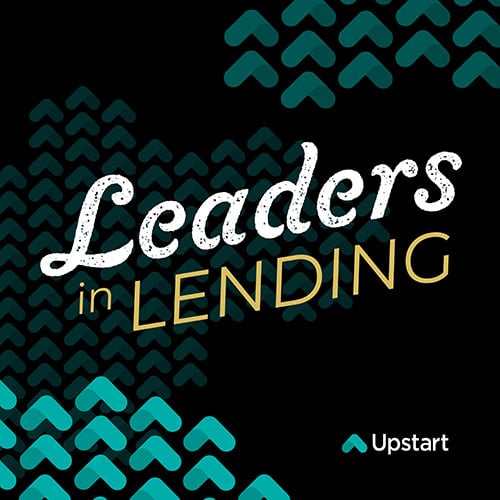Leaders in Lending | Ep. 99
Is Data the New Oil? What’s Next in Banking
Tim Shangle, Innovation and Data Analytics at ChoiceOne Bank and member of the American Bankers Association's Emerging Leaders Council, is all about using AI to develop breakthrough tactics and strategies to make lending more efficient and personal.


GUEST SPEAKER
Tim Shangle
Shangle is Assistant Vice President of Innovation & Data Analytics, Head of the Innovation Department. He joined ChoiceOne Bank in 2013 in the Customer Service Center. Shangle was promoted to Assistant Vice President of Innovation & Data Analytics in 2020 and Head of the Innovation Department in February. As part of this role, Shangle leads the Bank’s development of digital channel products. Before joining ChoiceOne, Shangle was the IT Director for the Theological Book Network in Grand Rapids. Prior to this, he was Web Architect, Interactive Media Developer for Asbury Theological Seminary in Wilmore, Kentucky. Shangle has a Master of Arts, Specialization in Theological Studies from the Asbury Theological Seminary in Wilmore, Kentucky, and a Bachelor of Science in Computer Information Systems from Aquinas College in Grand Rapids. He is also a graduate and class president of the Michigan Bankers Association Perry School of Banking.

ABOUT
ChoiceOne Bank
Locally owned for over 110 years, ChoiceOne Bank is a full service financial institution with offices in Kent, Ottawa, Muskegon and Newaygo Counties. ChoiceOne Bank offers insurance and investment products through its subsidiary, ChoiceOne Insurance Agencies, Inc. ChoiceOne Financial Services, Inc. is the holding company headquartered in Sparta, Michigan and the parent corporation of ChoiceOne Bank. For more information, please visit ChoiceOne’s website at www.choiceone.bank.
Key Topics Covered
- Innovation to scale and innovation to time
- Data as the new oil: does that make sense?
- Remembering the people behind the data

“With innovation, we have to kind of keep in mind that there's going to be a whole lot that changes. We just don't feel it changing. So you have to kind of look at that 10 years out.”

“We look at the numbers — we sometimes you have to remember, these are people behind this data.”

“Within 10 years, they'll be much more of virtual reality, especially in a business environment.”
EPISODE RECAP & SUMMARY
The release of ChatGPT has spurred all sorts of conversations and speculation into where the technology is taking humanity — and whether the destination is a cause for alarm or celebration. In the banking industry, leveraging these new advances in AI can increase lending accessibility and improve the customer experience.
Tim Shangle, Innovation and Data Analytics at ChoiceOne Bank and member of the American Bankers Association's Emerging Leaders Council, is all about using AI to develop breakthrough tactics and strategies to make lending more efficient and personal.
In the latest episode of Leaders in Lending, Jeff and Tim discuss:
- Innovation to scale and innovation to time
- Data as the new oil: does that make sense?
- Remembering the people behind the data
Innovation to scale and innovation to time
Artificial intelligence feeds into an increasing desire for customized customer experiences, offering the opportunity for tailor-made interactions and interfaces that align with specific demographics.
With all of that potential, there’s a risk of overextending innovation for a limited group of users.
“They call it niche banking,” Shangle said. “When we think about our geographic area, if we wanted to do something for dentists, we only have a limited geography and there are only so many dentists that can bank in that new geographical area. You have to weigh it.”
It pays to determine the circumstances and weigh the costs of innovation to scale before locking in extensive measures.
“If you're launching something nationally, it's very different than if you're a bank that's trying to reach a specific geographic area,” Shangle said.
Innovation to time
The other side of innovation is time: Is it ever too late to innovate in the banking industry? How do we know what’s worth exploring?
10 years ago, there were still multiple banks without mobile banking, mobile deposits or mobile wallets. The change seemed to happen overnight when, in reality, it had been simmering for years.
“With innovation, we have to keep in mind that there's going to be a lot that changes. We just don't feel it changing.” Shangle said, “You have to look at that 10 years out and remember that five years from now, you'll have plenty of time to hop on.”
Data as the new oil: does that make sense?
Oil is valuable in its resting state — if you’re one of the rare people who have it, no finesse or leveraging is needed.
Data is the opposite of oil — it’s everywhere, everyone has it, and, today, it isn’t hard to acquire. What makes data valuable is what we do with it. Much like silicon from sand or diamonds from coal, the results extracted from data are where the magic happens.
“The whole idea of data being the new oil, I definitely don't agree with it. It's the processing of the data that's important. That's what ChatGPT is doing — it's processing huge amounts of data.” Shangle said.
No matter how big the heap of data, it’s only as valuable as what we do with it — and AI can help us do something great with it by configuring that data into ideas and solutions.
“We don't need another tool to calculate the financial information for us, we already have tools that can do that.” Shangle said, “Where we struggle is taking those answers and getting them in a way that our customers are willing to view them and listen to us. That's where ChatGPT comes in.”
Remembering the people behind the data
Within a number-centric industry such as banking, it’s easy to lose track of the people attached to those numbers. Loans, deposits, interest rates — each one tells a story and impacts lives.
“I was talking with my uncle Keith Brophy and asking him, ‘Do you have any advice for when I sit on this panel discussion, and he said, ‘Tim, you can memorize as many facts and figures as you want, you can talk about all the statistics, but what people are going to remember at the end of the day is the stories you share.’” Shangle said.
Providing personal, human stories to account for successes paints a clearer picture than stating statistics and strictly numerical wins. And that takes asking the right questions.
Whose financial life did we improve? How did we improve it? And how can we continue to have a positive impact?
Stay tuned for new episodes every week on the Leaders in Lending Podcast.





